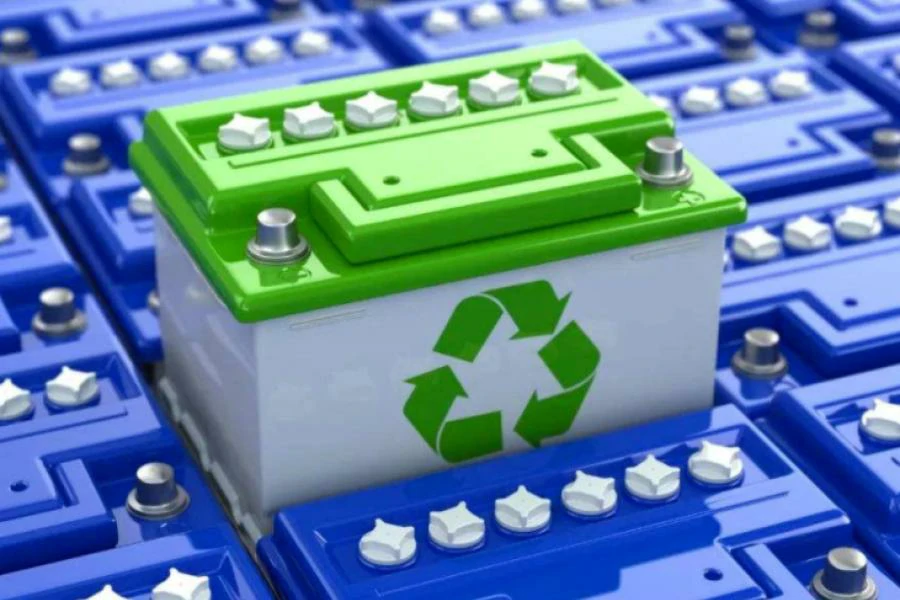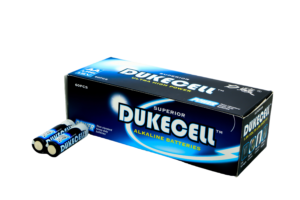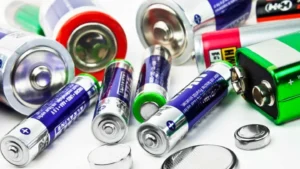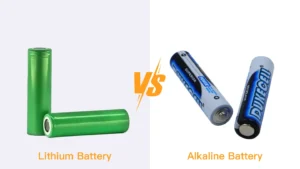Expert Insights from Dukecell
In our increasingly tech-driven world, the use of batteries has skyrocketed, leading to significant environmental challenges. At Dukecell, as a leading battery manufacturer, we are committed not only to providing high-quality battery solutions but also to educating our customers on responsible disposal practices. This article delves into common questions about battery disposal and offers expert advice on how to handle batteries at the end of their life cycle.
What Do You Do With Dead Batteries?
Dead batteries should not be treated as regular waste. Throwing them in the trash can lead to environmental pollution and pose risks to public health. Batteries contain various metals and chemicals, such as mercury, lead, cadmium, and lithium, which can be hazardous if not handled properly. At Dukecell, we recommend taking your dead batteries to a designated recycling center. This ensures that they are processed in a way that recovers valuable materials and minimizes environmental impact.
How Do You Get Rid of Batteries?
The process of getting rid of batteries responsibly starts with sorting them. Separate your batteries by type—alkaline, lithium-ion, nickel-cadmium, etc.—as different types require different recycling processes. Check with your local waste management services or visit dedicated recycling websites to find your nearest battery recycling facility. Some stores and businesses also offer take-back programs, providing an accessible drop-off point for used batteries.

What to Do With a Battery: Steps to Proper Disposal
- Identify: Check the type of battery you need to dispose of—rechargeable, single-use, or specialty.
- Store Safely: Keep old batteries in a non-conductive container, away from heat sources and materials that could trigger leakage or a short circuit.
- Recycle: Take the batteries to a certified recycling center or participate in a take-back program where the batteries can be properly handled according to environmental standards.
To Properly Recycle Batteries: Ensuring a Greener Future
To properly recycle batteries, it’s crucial to follow the specific guidelines set for each type of battery. At Dukecell, we encourage consumers to understand these guidelines, which are readily available at recycling centers and on environmental protection websites. Proper recycling helps in the conservation of resources, reduces pollution from extraction and processing of raw materials, and decreases greenhouse gas emissions.
Proper Battery Disposal
As technology permeates every facet of our lives, the use of batteries has become ubiquitous. However, the end of a battery’s useful life presents a unique set of challenges and responsibilities. Dukecell, a leader in the battery manufacturing industry, is committed to guiding consumers on the best practices for battery disposal. This guide addresses common concerns and provides straightforward advice on how to handle battery disposal responsibly.
How to Throw Out Batteries
When it comes to disposing of batteries, it’s crucial to understand that not all batteries can be treated the same. Common household batteries like AA, AAA, and others contain chemicals that, while less harmful than their rechargeable counterparts, still require careful handling. Dukecell advises against simply throwing these batteries into the trash. Instead, seek out local recycling programs that accept these items, ensuring they are processed safely and do not end up in landfills where they could harm the environment.
how to dispose of corroded batteries?
Handling corroded batteries requires extra caution. Corrosion can signal a breach in the battery’s structure, potentially leading to leaks of hazardous materials. If you encounter a corroded battery, it’s important to wear protective gloves, place the battery in a small plastic bag, and take it to a facility equipped to deal with hazardous waste. This precaution prevents harm to yourself and the environment, highlighting the need for careful disposal.
Is It Safe to Throw Away Batteries?
The short answer is no. Most batteries, regardless of type, contain metals and chemicals such as nickel, cadmium, and lithium, which pose environmental risks if not disposed of properly. Throwing batteries in the trash can lead to soil and water pollution as these chemicals leach into the ground. Moreover, improperly disposed batteries pose a fire risk in waste handling facilities. Dukecell emphasizes the importance of using certified recycling or disposal services to handle all battery types safely.
Alkaline Battery Disposal
As a leading battery manufacturer, Dukecell is dedicated to educating consumers about the proper disposal of batteries, particularly alkaline batteries. These commonly used power sources are found in everything from remote controls to children’s toys. However, when it comes to disposal, there are specific considerations that need to be addressed to ensure environmental safety and sustainability. This article will clarify common questions such as “Can you throw away alkaline batteries?” and provide guidance on best practices.
Learn More About: What Are Alkaline Batteries?

Can You Throw Away Alkaline Batteries?
The simple answer to whether you can throw away alkaline batteries in your regular trash may vary depending on your local regulations. In many regions, alkaline batteries can be disposed of with normal household waste. This is because most alkaline batteries manufactured after 1996 no longer contain mercury or other hazardous heavy metals, making them less harmful to the environment when disposed of in landfills. However, Dukecell encourages checking with local waste management policies to ensure compliance with any regional guidelines.
Can Alkaline Batteries Be Thrown in the Trash?
While alkaline batteries may be thrown in the trash in some areas, Dukecell advocates for a more responsible approach to disposal. Recycling centers often accept alkaline batteries, processing them in a way that minimizes environmental impact. By choosing to recycle, you contribute to the conservation of natural resources and the reduction of waste, supporting environmental sustainability efforts.
Can You Throw Alkaline Batteries in the Trash?
It’s important to reiterate that while throwing alkaline batteries in the trash is permissible in some locales, it may not be the best environmental choice. Local recycling programs provide an excellent alternative, helping to ensure that the components of these batteries are reused rather than sitting in landfills. We recommend using these programs whenever available.
Can I Throw Away Alkaline Batteries?
To answer this question: yes, you can, but with reservations. Dukecell, as a responsible manufacturer, suggests using local recycling options to dispose of alkaline batteries. This not only supports environmental health but also aligns with best practices for sustainability in waste management.
Read more: Types Of Alkaline Batteries?
How to Dispose of AA Batteries
At Dukecell, understanding the correct disposal methods for batteries, especially AA batteries, is a cornerstone of our commitment to environmental stewardship and consumer education. AA batteries are among the most commonly used battery types worldwide, powering everything from remote controls to children’s toys. However, when they reach the end of their life, many users are left wondering: “Can you throw AA batteries in the trash?” or “How should you dispose of AA batteries?” This article will provide clear, expert guidance on these questions to ensure safe and environmentally friendly practices.
Can You Throw AA Batteries in the Trash?
The answer to whether you can throw AA batteries in the trash is not straightforward and largely depends on your local waste management regulations. Generally, AA batteries made after 1996 are free of mercury and are less hazardous than their predecessors. However, they do contain materials that could be harmful to the environment if not disposed of properly. Therefore, while it might be legally permissible to dispose of AA batteries in regular trash in some areas, Dukecell encourages looking for more environmentally sound options.
Can You Throw Away AA Batteries?
Throwing away AA batteries in your household waste should be a last resort. Although modern AA batteries are less hazardous, they still contain components that can be recycled and repurposed. Dukecell recommends using local recycling programs to dispose of these batteries. Many communities offer resources for recycling batteries, which help in conserving natural resources and reducing landfill waste. By choosing to recycle, you are making a decision that supports environmental health.
Proper Ways to Dispose of AA Batteriles
Proper disposal of AA batteries involves a few key steps which ensure that you are adhering to environmental best practices:
- Identify a Recycling Facility: Locate your nearest recycling center that accepts batteries. Many supermarkets and stores also offer battery recycling bins.
- Prepare Batteries for Recycling: Ensure that the batteries are not damaged or leaking. If they are, they should be handled with care, preferably wearing gloves, and placed in a separate bag.
- Drop Off Batteries: Take your batteries to the recycling point, or if your community offers, utilize special hazardous waste collection events to dispose of your batteries safely
Essential Guidelines for Disposing of Coin and Button Batteries
Dukecell, as a leading manufacturer in the battery industry, is committed to promoting responsible and safe disposal methods for all types of batteries, including coin and button batteries. These small yet powerful items, such as the CR2032 battery, are commonly used in various devices from watches to car key fobs. Proper disposal is essential not only for environmental protection but also for preventing potential hazards. This article provides essential information on coin battery disposal, the proper ways to dispose of button batteries, and specific considerations for CR2032 battery disposal.
Coin Battery Disposal:
Coin batteries, especially those used in small electronics, require careful disposal due to their size and the materials they contain. It’s important to understand that these batteries should not be thrown in the trash. They contain metals that can be harmful to the environment if not handled correctly. To properly dispose of coin batteries, look for a recycling program that accepts these types of batteries. Many retailers and public facilities provide battery recycling bins specifically designed for small batteries such as these.
Proper Disposal of Button Batteries:
Disposing of button batteries follows similar guidelines to those for coin batteries. Given their small size and the ease with which they can be improperly thrown away, it’s crucial to handle the disposal of button batteries with care. These batteries often contain silver oxide, lithium, or alkaline electrolytes, all of which pose environmental risks if not disposed of properly. Consumers are advised to bring these batteries to a certified recycling center or a retailer that offers recycling services for button batteries.
CR2032 Battery Disposal:
CR2032 batteries, also known as 2032 batteries, are a common type of button cell lithium battery used in numerous electronic devices such as car keys, watches, and timers. Due to their content of heavy metals and other potentially harmful substances, proper disposal of these batteries is crucial for environmental protection.
People often ask questions like “Can CR2032 batteries be thrown away?” and “How to dispose of CR2032 batteries?” The answer is that, like other button cell batteries, CR2032 batteries should not be thrown into the trash. They must be taken to appropriate recycling or hazardous waste disposal facilities where they can be safely processed. This ensures that the lithium and other metals contained in these batteries are recycled or disposed of in a manner that does not harm the environment.
Composition and Potential Hazards of 2032 Batteries
2032 batteries primarily consist of lithium compounds, electrolytes, cathode materials, and anode materials. These batteries may contain heavy metals such as mercury, cadmium, and lead, which are harmful to both the environment and human health. Improper disposal can lead to these harmful substances leaching into the soil and water sources, causing long-term environmental impacts.
Can CR2032 Batteries Be Thrown Away?
You should not discard 2032 batteries carelessly. Doing so is not only harmful to the environment but may also violate local regulations regarding the disposal of hazardous waste. When batteries decompose, the chemicals inside can leak and pollute the environment. Therefore, the correct CR2032 disposal is the responsibility of every user.
How to Dispose of 2032 Batteries
Since CR2032 batteries contain lithium, they should be handled with care and require specific recycling procedures to prevent environmental harm and safety risks. Here are the correct ways to dispose of CR2032 batteries:
Identify Collection Points: Find local authorized battery collection points. These points are usually located at electronics stores, supermarkets, or recycling centers that offer battery recycling services.
Follow Local Regulations: Check with your local waste management or environmental protection agency for specific guidance on how to handle lithium batteries.
Avoid Mixing with Regular Waste: Never discard CR2032 batteries in regular trash bins, as they can cause fires in landfills or during waste processing.
Do Not Puncture or Damage: Ensure that the batteries are not punctured or damaged before disposal, as this can result in the leakage of dangerous chemicals.
Use Recyclable Containers: If possible, place used batteries in a recyclable container or a battery collection box provided by the recycling service.
Safe Transportation: Transport the batteries to the recycling facility in a safe manner to avoid any situations that could damage the batteries.
Inform Others: If you are in charge of a business or organization, inform your employees or members about the correct disposal methods for CR2032 batteries.
Raise Awareness: Encourage others to recycle batteries properly and raise awareness about the importance of battery recycling for environmental protection.
Proper CR2032 disposal is essential for reducing environmental pollution and promoting sustainable use of resources. By following the guidelines above, you can help ensure that these batteries are disposed of properly and contribute to environmental protection. Remember, small efforts can make a big difference.
Safe Disposal of 9 Volt Batteries
As a prominent battery manufacturer, Dukecell is dedicated to promoting responsible disposal practices for all battery types, including 9 volt batteries. These batteries are commonly used in smoke detectors, clocks, and other household electronics, and require careful disposal to ensure environmental protection and public safety. This guide will provide clear instructions on how to dispose of 9 volt batteries, to dispose of 9v batteries, and the correct methods to dispose of a 9v battery.
How to Dispose of 9 Volt Batteries:
Disposing of 9 volt batteries properly is crucial to prevent any hazards. Due to their design, the terminals of 9 volt batteries can easily come into contact with metal objects and cause short circuits, which can lead to fire hazards. To safely dispose of these batteries, it is recommended to cover the terminals with a piece of tape before disposal, especially if they are being thrown in the trash, although this is not the most recommended method.
To Dispose of 9V Batteries:
The best practice for disposing of 9V batteries involves taking them to a designated recycling center. This ensures that the batteries are handled safely and their components are recycled responsibly. Recycling not only helps in reducing environmental pollution but also conserves resources by recovering valuable materials from the batteries. Most local waste management services provide specific information on where and how to bring used batteries for recycling.
Dispose of a 9V Battery:
When it’s time to dispose of a 9V battery, aside from recycling, another responsible approach includes participating in community hazardous waste collection events. These events are often organized to collect items like batteries, ensuring they are managed by professionals who know exactly how to handle and dispose of them properly. Always ensure that the 9V batteries are kept in a non-conductive container until they can be properly disposed of to avoid any risk of short-circuiting.

Responsible Disposal of NiMH and NiCd Batteries
At Dukecell, we understand the importance of sustainability and environmental responsibility, especially when it comes to disposing of batteries. Nickel-Metal Hydride (NiMH) and Nickel-Cadmium (NiCd) batteries are commonly used in a variety of devices, including digital cameras, power tools, and emergency lighting systems. Proper disposal of these batteries is crucial to prevent environmental harm and promote recycling of valuable materials. This guide will explore how NiMH and NiCd batteries should be disposed of, adhering to the best practices for NiMH battery disposal and nickel cadmium battery disposal.
How Should NiMH Batteries Be Disposed Of?
NiMH batteries, being less toxic than their NiCd counterparts, are often considered easier to dispose of. However, it’s imperative to handle NiMH battery disposal with care to ensure environmental safety. Instead of throwing them in the trash, NiMH batteries should be taken to a certified recycling center. Many local waste management services offer recycling programs specifically for batteries, which allow the metals and other components to be recovered and reused. Recycling not only helps in reducing landfill waste but also conserves resources.
NiMH Battery Disposal:
When disposing of NiMH batteries, it’s important to keep them in a state that prevents leakage. Before recycling, ensure that the battery terminals are taped or each battery is placed in a separate bag. This prevents them from coming into contact with other metals and potentially causing short circuits. Look for local regulations and recycling programs, which can often be found on municipal or environmental websites, to find the most appropriate disposal method in your area.
NiCd Battery Disposal:
Disposing of nickel cadmium batteries requires careful attention due to their toxic nature. NiCd batteries contain cadmium, a heavy metal with significant environmental and health risks if not handled properly. Like NiMH batteries, NiCd batteries should never be thrown in the trash. They must be taken to a facility capable of handling hazardous waste. Special care should be taken to follow local and federal regulations regarding the disposal of NiCd batteries to prevent contamination of landfills and water sources.
Nickel Cadmium Battery Disposal:
For nickel cadmium battery disposal, it is essential to utilize designated hazardous waste collection points. Many communities offer specific drop-off times and locations for hazardous waste to ensure that materials like cadmium do not enter the environment. By participating in these programs, consumers contribute significantly to environmental health and safety.
Dispose of Nicad Batteries:
The disposal of Nicad (nickel-cadmium) batteries must always consider the environmental impact of cadmium. If your local waste management does not provide clear instructions or facilities for Nicad battery disposal, seek out state or federal environmental agencies for guidance. Ensuring these batteries are disposed of properly mitigates the risk of pollution and supports recycling efforts.
Safe Disposal of Lithium Batteries
Lithium batteries are an integral part of daily life, powering everything from smartphones to laptops and electric vehicles. As a leading battery manufacturer, Dukecell is committed to not only providing high-quality lithium batteries but also educating our customers on their safe disposal. Due to their chemical composition and potential environmental impact, it is crucial to handle the disposal of lithium batteries with care. This guide will provide detailed information on what to do with lithium batteries at the end of their lifecycle.
What to Do with Lithium Batteries:
Lithium batteries, known for their high energy density and long lifespan, require specific disposal measures to ensure environmental safety and prevent potential hazards. Unlike regular household waste, lithium batteries should not be disposed of in trash bins or landfill sites. The reactive nature of lithium can pose fire risks, especially when battery terminals come into contact with metal objects, potentially leading to hazardous situations.
The recommended approach for lithium battery disposal is to utilize designated recycling programs. Many communities offer recycling solutions specifically tailored for batteries, ensuring that these items are processed in a way that recovers valuable materials and minimizes environmental damage. Consumers are encouraged to visit their local waste management facilities or contact municipal recycling centers to find out more about available battery recycling options.
Expert Advice on Lithium Battery Disposal from Dukecell:
Dukecell advises that before disposing of any lithium battery, users should ensure the battery is completely discharged and kept in a non-conductive container. This precaution helps to prevent any residual charge from causing unintended reactions during the handling process. Additionally, taping over the battery terminals can provide an extra layer of safety by preventing short circuits.
For larger lithium batteries, such as those used in electric vehicles, it is essential to consult professionals who specialize in handling and recycling these types of batteries. These specialists are equipped with the necessary tools and knowledge to safely manage the complexities associated with high-capacity lithium batteries.
Handling Rechargeable Batteries:
Handling Rechargeable Batteries
Rechargeable batteries include Lithium-ion (Li-ion), Nickel-Metal Hydride (NiMH), and Nickel-Cadmium (NiCd) batteries, with Lithium-ion being the most common type of cell phones laptops. When handling rechargeable batteries, first, you need to separate different types of rechargeable batteries. Before recycling, store old batteries in a non-conductive container, away from heat sources and materials that could cause leakage or short circuits. Take the batteries to an authorized recycling center or participate in a battery recycling program to ensure that the batteries are properly handled according to environmental standards.
When dealing with rechargeable batteries, it is important to follow the specific guidance of local waste management and environmental protection agencies to ensure that your disposal methods are both safe and environmentally friendly. By participating in battery recycling programs, you not only help protect the environment but also support the sustainable use of resources.




